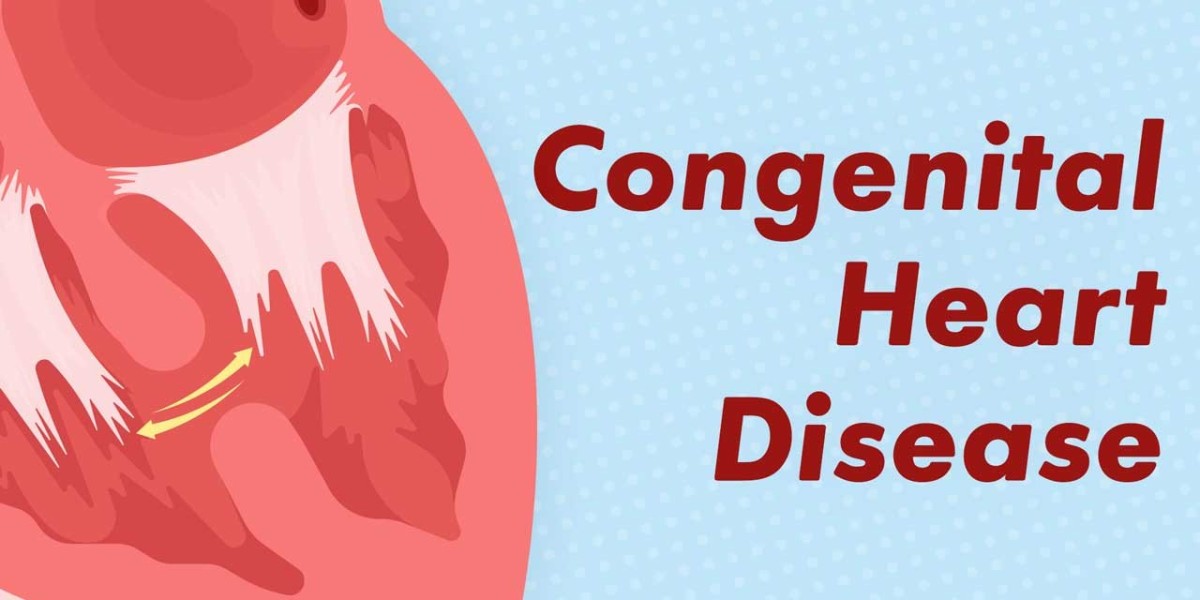What is Congenital Heart Disease (CHD)?
Congenital heart disease (CHD) is one of the most common birth defects affecting millions of people worldwide. It refers to a range of heart conditions that are present at birth, typically caused by abnormal development of the heart or blood vessels in the fetus. In this article, we'll explore what congenital heart disease is, its causes, symptoms, diagnosis, treatment options, and more, with a special focus on the services provided by Horizon Hospital.
Types of Congenital Heart Disease
- Atrial Septal Defect (ASD)
- A hole in the wall that separates the heart's two upper chambers (atria).
- Ventricular Septal Defect (VSD)
- A hole in the wall separating the heart's two lower chambers (ventricles).
Tetralogy of Fallot (TOF)
A complex condition involving four heart defects, which can cause oxygen-poor blood to flow to the body.
Coarctation of the Aorta
A narrowing of the aorta that can restrict blood flow to the lower part of the body.
Patent Ductus Arteriosus (PDA)
A condition where a blood vessel called the ductus arteriosus fails to close after birth, causing abnormal blood flow.
Transposition of the Great Arteries (TGA)
A condition where the two main arteries leaving the heart are reversed, causing oxygen-poor blood to circulate through the body.
Causes of Congenital Heart Disease
While the exact cause of congenital heart disease is not always known, several factors may contribute to its development:
Genetic Factors
Certain genes or inherited conditions, such as Down syndrome or Marfan syndrome, can increase the risk of CHD.
Environmental Factors
Maternal factors, like smoking, alcohol consumption, drug use, or certain medications during pregnancy, may increase the risk of birth defects.
Infections During Pregnancy
Infections like rubella or cytomegalovirus (CMV) during pregnancy can affect the heart's development in the fetus.
Poor Maternal Health
Chronic conditions like diabetes or obesity in the mother may also contribute to the development of congenital heart defects in the baby.
Symptoms of Congenital Heart Disease
Symptoms of CHD vary depending on the type and severity of the condition. In some cases, symptoms may not appear until later in life. Common signs and symptoms include:
- Cyanosis (bluish skin, lips, or nails)
- Shortness of breath or difficulty breathing
- Rapid heartbeat or palpitations
- Fatigue or lethargy, especially during physical activity
- Swelling in the legs, abdomen, or veins in the neck
Poor feeding and growth in infants
If your child or loved one experiences any of these symptoms, it’s crucial to seek medical advice immediately.
Diagnosing Congenital Heart Disease
Early diagnosis of congenital heart disease is essential for effective treatment and management. Some common diagnostic tests and procedures include:
Physical Examination
Doctors often detect signs of CHD through a routine physical exam, noting symptoms such as a heart murmur or abnormal pulse.
Echocardiogram (Echo)
This is a primary imaging test used to visualize the heart’s structure and function. It uses sound waves to create detailed pictures of the heart.
Electrocardiogram (ECG)
An ECG records the heart's electrical activity and can help detect any irregularities in heart rhythms.
Chest X-ray
A chest X-ray can provide a view of the heart’s size and shape, helping doctors assess for any abnormal development.
Cardiac MRI or CT Scan
In more complex cases, an MRI or CT scan can offer a more detailed view of the heart’s structure.
Cardiac Catheterization
This test involves threading a thin tube into the heart to measure pressures and oxygen levels in different heart chambers and vessels.
Treatment Options for Congenital Heart Disease
The treatment for congenital heart disease depends on the type and severity of the defect. Some options include:
Medications
Medications such as diuretics, blood thinners, or ACE inhibitors may be prescribed to manage symptoms and improve heart function.
Surgical Interventions
Many congenital heart defects require surgery to repair or correct the abnormality. Procedures may include closing holes in the heart, repairing valves, or replacing arteries.
Catheter-Based Procedures
In some cases, doctors can use catheter-based interventions to repair defects, such as using a balloon to open narrowed arteries or placing a stent to keep vessels open.
Lifestyle Modifications
Managing lifestyle factors such as physical activity, diet, and weight management can be crucial, especially for those with milder conditions.
Managing Congenital Heart Disease at Horizon Hospital
Horizon Hospital provides world-class diagnostic and treatment options for patients with congenital heart disease. With advanced technologies, skilled cardiologists, and personalized care, Horizon Hospital aims to offer the best possible outcomes for individuals of all ages. The hospital offers:
State-of-the-art diagnostic tools
- Comprehensive cardiac care team
- Customized treatment plans
- Post-surgery rehabilitation and support
For those diagnosed with congenital heart disease, Horizon Hospital ensures that each patient receives the highest level of care from the initial diagnosis to long-term management.
Preventing Congenital Heart Disease
While not all congenital heart defects can be prevented, certain steps may reduce the risk of developing CHD:
- Pre-conception care: Ensure good maternal health before pregnancy, including managing chronic conditions and avoiding harmful substances.
- Proper prenatal care: Regular check-ups during pregnancy, including screening for infections or potential birth defects.
- Vaccination: Get vaccinated for infections such as rubella before pregnancy to reduce the risk of congenital heart defects.
Living with Congenital Heart Disease
With the right treatment, many individuals with congenital heart disease live long and fulfilling lives. It's important for patients to:
- Regularly monitor heart health with follow-up check-ups.
- Adhere to prescribed treatments, medications, or lifestyle changes.
- Seek support from family, friends, and support groups.
Conclusion
Congenital heart disease can be overwhelming for families, but with early diagnosis and appropriate treatment, many patients can lead active, healthy lives. Horizon Hospital offers expert care, utilizing advanced diagnostic and treatment options tailored to individual needs. If you or your child has been diagnosed with CHD, rest assured that with the right care, a better quality of life is possible.
FAQs
What are the common causes of congenital heart disease?
Congenital heart disease may be caused by genetic factors, maternal infections during pregnancy, environmental influences, or poor maternal health.
Is congenital heart disease treatable?
Yes, many forms of congenital heart disease are treatable through medication, surgery, or catheter-based procedures.
Can congenital heart disease be detected before birth?
Yes, certain congenital heart defects can be detected through prenatal screening methods like ultrasounds or fetal echocardiograms.
What is the prognosis for individuals with congenital heart disease?
The prognosis depends on the type and severity of the defect, but many individuals with CHD can live normal lives with proper treatment.
How can Horizon Hospital help in managing congenital heart disease?
Horizon Hospital provides comprehensive care, from diagnosis to treatment and ongoing management, ensuring the best outcomes for individuals with congenital heart disease.

![Harmony Glow CBD Gummies [Latest Offers 2024-25 Updated]](https://biiut.com/upload/photos/2024/11/Zr6vbLtRz6iwYrtgC2As_08_cc55be5f47f3173697ffa39c9b258764_image.jpg)

